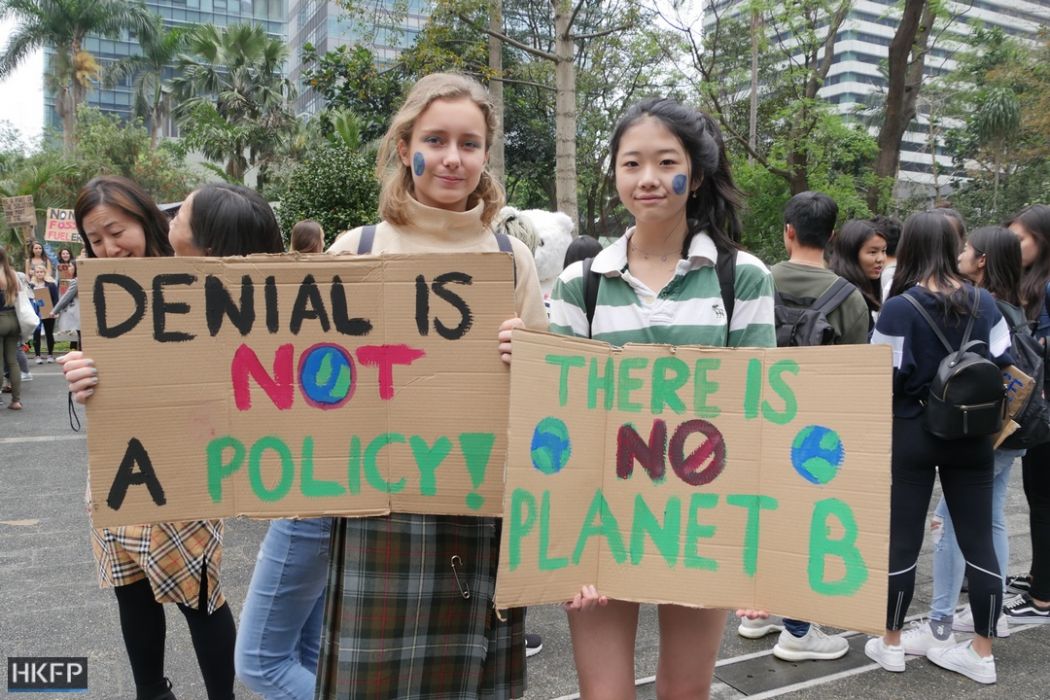By Roshan Melwani
We’ve all heard the science behind the Earth’s rising temperatures. If you haven’t, I’m sure you’ve felt how unforgivingly hot Hong Kong has been these last few weeks. The weather has reached a point where the breeze of a harbour-side stroll is not as enjoyable as wandering through any of the city’s mind-numbingly homogeneous shopping malls.
Within the cocoon of retail paradise, it’s easy to forget that we’re living through a global climate emergency. Ignorance is bliss, especially when the A/C is on full blast.

Sadly, sheltering from the summer heat in our city’s ventilated cathedrals of capitalism is not a universally-feasible pilgrimage. For millions around the world, the adverse impact of climate-associated disruption means being forcibly displaced and uprooted from your home.
In the Solomon Islands, last month marked the first time an entire island has been submerged by rising sea levels. According to the Internal Displacement Monitoring Centre, 2020 was the first year in which more people were displaced by climate change than by violent conflict.
While it is unclear how many “climate refugees” there will be in the future, the numbers will only increase as global environmental stress intensifies. The resulting humanitarian challenge is no longer a future hypothetical, but a present reality.
It’s also much closer to home than we think. Of the 21.5 million people displaced last year because of climate change, 5.1 million were in China. Extreme weather events such as heat-waves are increasing the rate at which people in rural China move into urban areas.

Yet as coastal and low-lying cities, like those in the Greater Bay Area, continue to experience rapid economic development and population expansion, their citizens become more vulnerable to disaster displacement. Hong Kong is no exception.
The information is also nothing new. Climate Central has previously reported that Hong Kong is set to be one the cities hardest hit by climate change events, with high risks of displacement under all projected warming scenarios. A 2018 HKUST study paints a clearer picture: without significant adaptation measures, a sudden-onset flood event before 2100 can be expected to cause up to 1.5 million internal displacements in the region.
Despite these risks, the Government has no published strategy to tackle climate-induced displacement. Hong Kong’s Climate Action Plan 2030+ makes no reference to internal displacement considerations, nor does its Outline Development Plan for the Greater Bay Area.
Somewhat unsurprisingly, the Government’s policy coordination has focused primarily on mitigating the risks that sea level rise poses to financial and infrastructural assets. An Interdepartmental Climate Change Working Group on Infrastructure has been established, but reducing the human cost appears to have only gotten this far:

“Beyond considering what might be a mid-term defensive approach to sea level rise, there are longer-term considerations that will need to be discussed in the coming years. There may be areas which should not be built on and even areas which a retreat in the future might have to be considered. Such considerations have wide social, financial and political implications.”
p. 73, HK’s Climate Action Plan
The Government has made it clear that Hong Kong’s future lies in deepening integration with the Greater Bay Area. It follows that we need a policy approach to climate change that includes the possibility of displacement.
As we move towards 2047, reconciling displacement events in the Pearl River Delta with Hong Kong’s “one-country, two systems” framework will raise unique legal and constitutional challenges. These challenges will need to be balanced against the importance of designing risk reduction measures and durable solutions that minimise the negative human rights impacts of disaster and displacement.
Besides the lives saved, such future planning is needed to at least ensure that the Greater Bay Area’s development plans won’t sink – figuratively and literally.
Support HKFP | Policies & Ethics | Error/typo? | Contact Us | Newsletter | Transparency & Annual Report | Apps
| HKFP is an impartial platform & does not necessarily share the views of opinion writers or advertisers. HKFP presents a diversity of views & regularly invites figures across the political spectrum to write for us. Press freedom is guaranteed under the Basic Law, security law, Bill of Rights and Chinese constitution. Opinion pieces aim to point out errors or defects in the government, law or policies, or aim to suggest ideas or alterations via legal means without an intention of hatred, discontent or hostility against the authorities or other communities. |
Help safeguard press freedom & keep HKFP free for all readers by supporting our team

More HKFP OPINION:
HKFP has an impartial stance, transparent funding, and balanced coverage guided by an Ethics Code and Corrections Policy.
Support press freedom & help us surpass 1,000 monthly Patrons: 100% independent, governed by an ethics code & not-for-profit.










